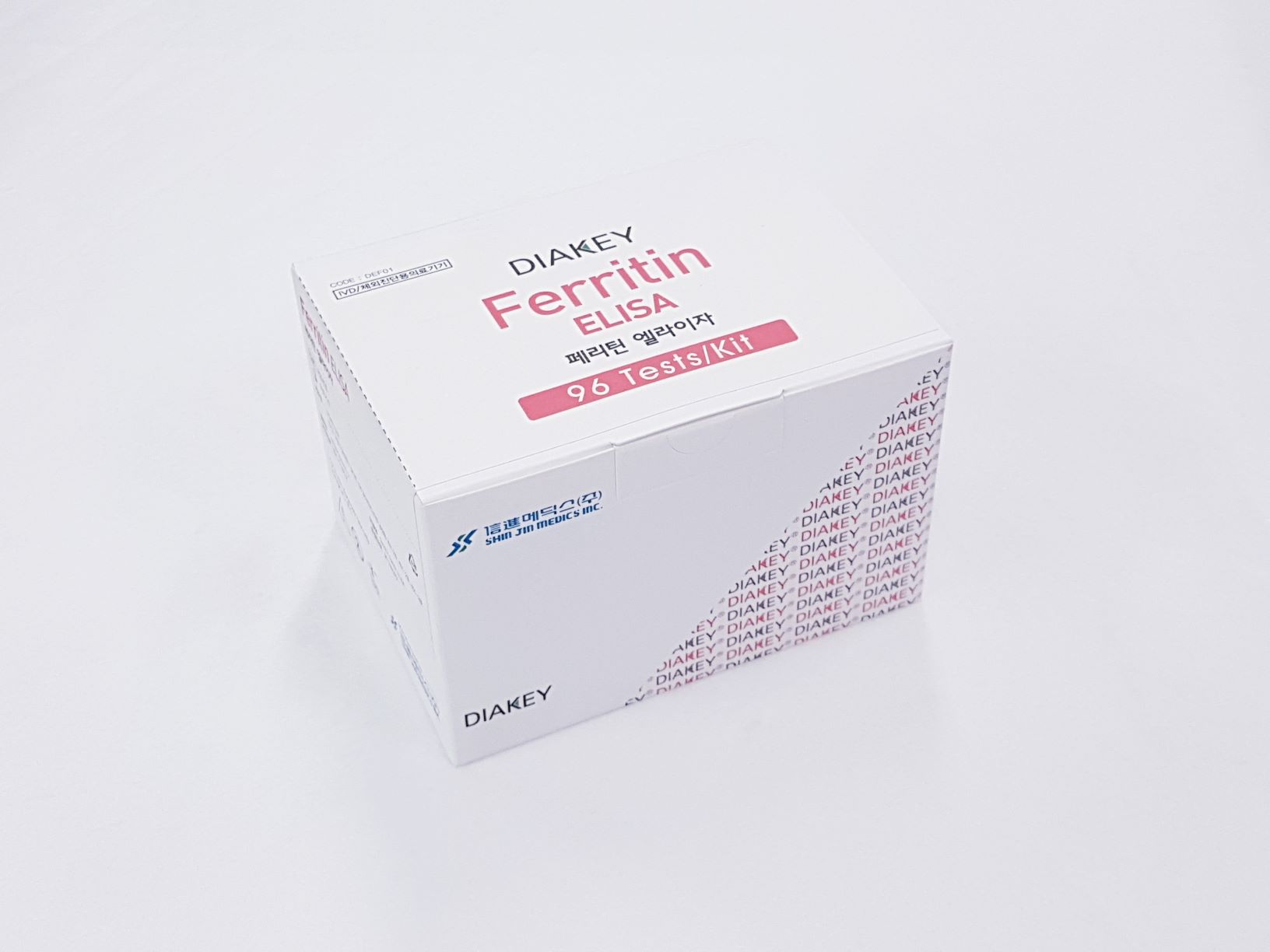Product

DIAKEY Ferritin ELISA
Intended Use
Enzyme immunoassay for quantitative determination of Ferritin in human serum
Principle of the Assay
The DIAKEY Ferritin ELISA is a solid-phase, non-competitive immunoassay based upon the sandwich technique. Two different monoclonal anti-Ferritin antibodies are used. One antibody is coated on solid phase (coated plate), the other, specific for the Ferritin and labeled with HRP is used as a conjugate. The conjugate antibody and the coated antibody react simultaneously with the Ferritin antigen present in the standards, control serum and sample. Unbounded material is removed by a washing step. After washing, substrate reagent is added to each well and the enzyme reaction is allowed to proceed. During the enzyme reaction a blue color will develop if antigen is present. The intensity of the color is proportional to the amount of Ferritin present in the samples. The color intensity is determined in a microplate spectrophotometer at 450nm (reference 620nm).
Handling Precaution
- Do not use mixed reagents from different lots.
- Do not use reagents beyond the expiration date.
- Use distilled water stored in clean container.
- Use an individual disposable tip for each sample and reagent, to prevent the possible cross-contamination among the samples.
- Rapidly dispense reagents during the assay, not to let wells dry out.
Use Precaution
- Wear disposable globes while handling the kit reagents and wash hands thoroughly afterwards.
- Do not pipette by mouth.
- Do not smoke, eat or drink in areas where specimens or kit reagents are handle.
- Handle samples, reagents and loboratory equipments used for assy with extreme care, as they may potentially contain infectious agents.
- When samples or reagents happen to be spilt, wash carefully with a 1% sodium hypochlorite solution.
- Dispose of this cleaning liquid and also such used washing cloth or tissue paper with care, as they may also contain infectious agents.
- Avoid microbial contamination when the reagent vial be eventually opend or the contents be handled.
- Use only for IN VITRO.

